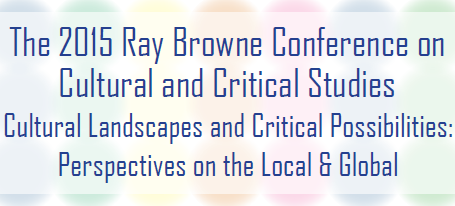Event Title
“The Strength of Street Knowledge”: Media Representations of the Political Discourse of Gangsta Rap
Start Date
14-2-2015 2:00 PM
End Date
14-2-2015 3:20 PM
Panel
Authenticity and Appropriation in Popular Music
Paper/Panel Track (if known)
Mediascapes
Abstract
In the late 1980s, following the increased popularity of “gangsta rap,” a sub-genre of hardcore hip hop music, prominent news media outlets demonized its performers as violent, misogynistic, homophobic thugs. Gangsta rap certainly contained violent and sexually explicit lyrics, but its themes also included nuanced critiques of racism and police brutality. Packaged in an increasingly-fashionable medium, gangsta rap dangerously expressed black liberation while simultaneously becoming popular with teenagers of all ethnic groups. The predominantly-white and elite media reaction exemplified wide-ranging efforts on the part of elites to silence or marginalize the political messages of gangsta rap by disparaging rap as deviant thug culture, delegitimizing its political statements because valid political discourse precludes violence, and comparing gangsta rap to alternative rap, another hip hop sub-genre that was lauded by media outlets because it promoted non-violence. This paper also analyzes how these trends echoed the glamorization of Martin Luther King Jr. and the non-violent Civil Rights Movement and the denigration of Black Nationalist figures like Malcolm X who believed violence had legitimate political uses.
The media focused on gangsta rap’s themes of violence and misogyny to marginalize and discredit rap’s political critiques and revolutionary rhetoric. This paper will argue that gangsta rap contained thorough critiques of white supremacy and structural racism, while the media focused on the culturally-constructed “negative” aspects of gangsta rap rather than the critical subject matter. The media also privileged non-violence in music and racial politics. This paper examines newspaper reports that attempted to discredit the political discourse of gangsta rap in the late 1980s and early 1990s. National and regional newspapers demonstrate the cultural interplay between the popular medium of music and the elite medium of large-scale print while also underscoring the various clashes between musical and authorial identities.
This document is currently not available here.
“The Strength of Street Knowledge”: Media Representations of the Political Discourse of Gangsta Rap
In the late 1980s, following the increased popularity of “gangsta rap,” a sub-genre of hardcore hip hop music, prominent news media outlets demonized its performers as violent, misogynistic, homophobic thugs. Gangsta rap certainly contained violent and sexually explicit lyrics, but its themes also included nuanced critiques of racism and police brutality. Packaged in an increasingly-fashionable medium, gangsta rap dangerously expressed black liberation while simultaneously becoming popular with teenagers of all ethnic groups. The predominantly-white and elite media reaction exemplified wide-ranging efforts on the part of elites to silence or marginalize the political messages of gangsta rap by disparaging rap as deviant thug culture, delegitimizing its political statements because valid political discourse precludes violence, and comparing gangsta rap to alternative rap, another hip hop sub-genre that was lauded by media outlets because it promoted non-violence. This paper also analyzes how these trends echoed the glamorization of Martin Luther King Jr. and the non-violent Civil Rights Movement and the denigration of Black Nationalist figures like Malcolm X who believed violence had legitimate political uses.
The media focused on gangsta rap’s themes of violence and misogyny to marginalize and discredit rap’s political critiques and revolutionary rhetoric. This paper will argue that gangsta rap contained thorough critiques of white supremacy and structural racism, while the media focused on the culturally-constructed “negative” aspects of gangsta rap rather than the critical subject matter. The media also privileged non-violence in music and racial politics. This paper examines newspaper reports that attempted to discredit the political discourse of gangsta rap in the late 1980s and early 1990s. National and regional newspapers demonstrate the cultural interplay between the popular medium of music and the elite medium of large-scale print while also underscoring the various clashes between musical and authorial identities.

